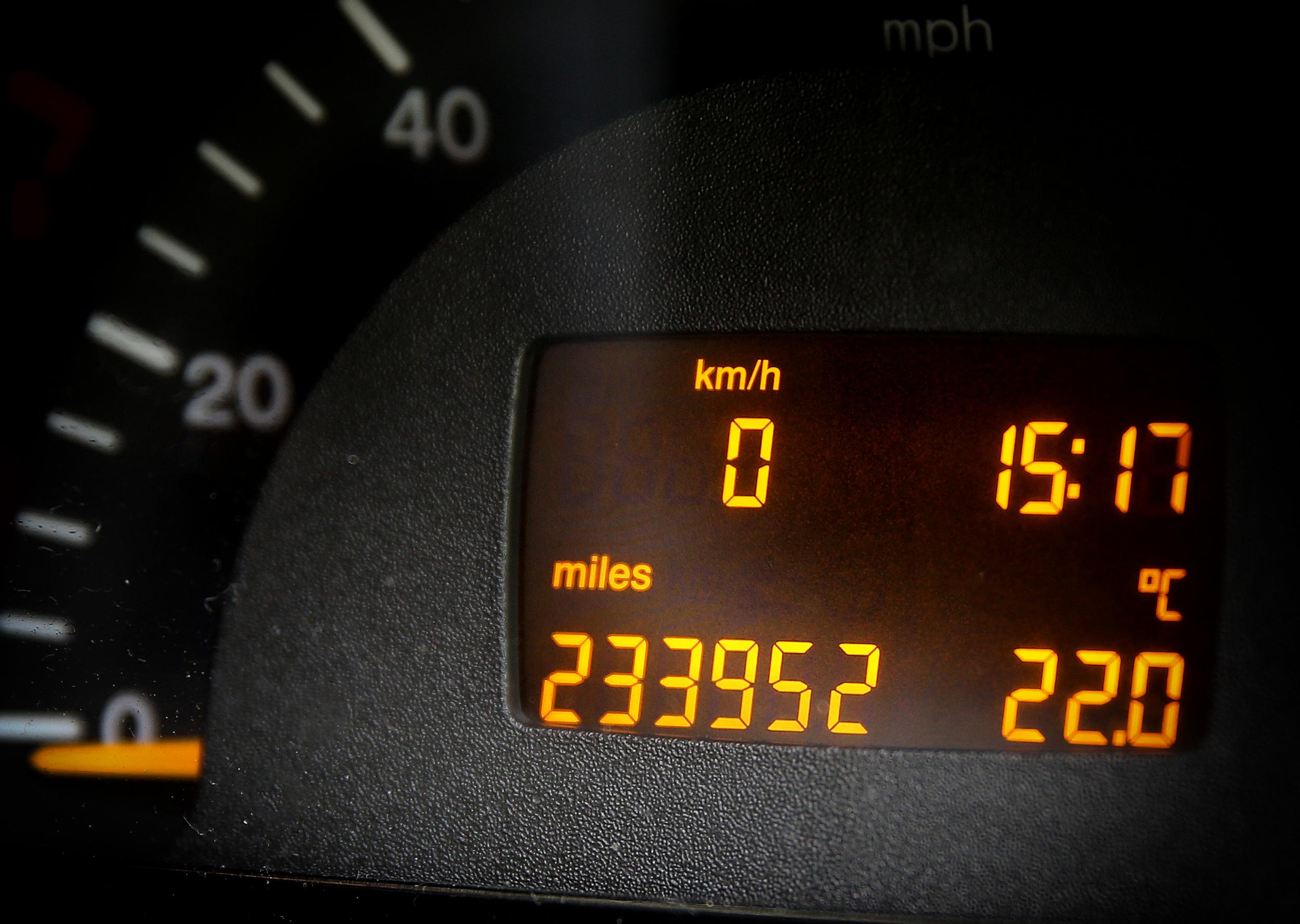Clocking more widespread than ever, warn motor trade experts
The practice of altering a car’s genuine mileage is in demand from motorists hoping to avoid costly penalties for exceeding mileage allowances, finds Sean O’Grady

Your support helps us to tell the story
From reproductive rights to climate change to Big Tech, The Independent is on the ground when the story is developing. Whether it's investigating the financials of Elon Musk's pro-Trump PAC or producing our latest documentary, 'The A Word', which shines a light on the American women fighting for reproductive rights, we know how important it is to parse out the facts from the messaging.
At such a critical moment in US history, we need reporters on the ground. Your donation allows us to keep sending journalists to speak to both sides of the story.
The Independent is trusted by Americans across the entire political spectrum. And unlike many other quality news outlets, we choose not to lock Americans out of our reporting and analysis with paywalls. We believe quality journalism should be available to everyone, paid for by those who can afford it.
Your support makes all the difference.If you thought that “clocking” car mileometers was a thing of the past, consigned to criminal history by new electronic displays, then think again.
According to automotive data experts HPI, a credit-checking company, unsuspecting motorists are more vulnerable behind the wheel than ever before. New figures reveal that the number of cars on UK roads with mileage discrepancies has risen to one in 14, or about 7 per cent.
The number of cars being “clocked” has shot up from one in 16 in 2017 and one in 20 cars in 2014, an increase of nearly a third in just five years.
HPI estimates the practice is costing motorists over £800m every year.
It is illegal to sell a clocked car without declaring its genuine mileage, but the act of altering the car’s mileometer, or odometer, is not in itself an offence. Some adjustments, for example when a new engine is fitted, can be legitimate. The illegal practice of clocking takes place when drivers or traders look to deliberately defraud second-hand car buyers when the vehicle is sold on.
Commenting on the worrying increase in the practice, Barry Shorto, head of industry relations at HPI, commented: “Clocking and mileage fraud is a problem that refuses to go away and continues to get worse. Used-car buyers now have a one in 14 chance of purchasing a vehicle with a mileage discrepancy which is extremely concerning. Criminals are increasingly using more advanced technology to make it easier for them to clock vehicles and cover their tracks.
“The continued development of technologies to alter digital odometers, easy access to this technology via the internet and similarly, the ease of access to mileage adjustment services online – some of whom will behave legitimately, others less so – are all exacerbating the trend. The increase in mileage-related finance arrangements such as PCP and PCH may also be a contributing factor as motorists look to avoid costly penalties for exceeding mileage allowances.”
Clocking is made even easier for younger vehicles because new cars don’t have to have an MOT for the first three or four years, so there is no official record of their mileage, making it more difficult to verify. HPI estimates that 1 in 3 cars that it checks every year has a hidden history, for example outstanding finance or undeclared repairs. In 2018, over 28 million HPI checks were carried out on UK vehicles.
Mr Shorto added: “It can be almost impossible to tell a clocked vehicle just by looking at it, which makes a vehicle history check an even more vital form of protection for buyers. A clocked vehicle could be hiding serious levels of wear and tear, especially if it has been previously used as a high-mileage private hire vehicle for a couple of years – meaning the additional cost of unexpected repairs or even a potentially serious safety threat to driver, passengers and other road users. An HPI check can help protect consumers from buying a vehicle with something to hide, saving them cash and keeping them safe.”
Join our commenting forum
Join thought-provoking conversations, follow other Independent readers and see their replies
Comments